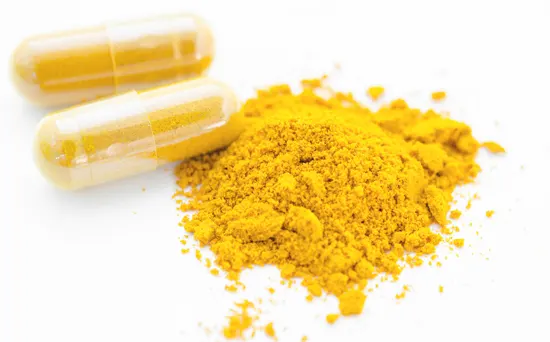Longvida® Exhibits Significant Improvements To Biomarkers
Longvida® Exhibits Significant Improvements To Biomarkers
Researchers at Central Michigan University have taken a closer look at Longvida Optimized Curcumin®. Previously, these researchers conducted amyloid binding work in vitro with promising results1. Recently published, in the International Journal of Alzheimer’s Disease, Maiti P et al have compared standard, unformulated curcumin more closely to Longvida with SLCP™ Technology.
The present study, “was designed to compare the neuroprotective effects of [unformulated 95% curcumin equivalent to 80% free curcumin] and/or SLCP™ [Longvida® with 20% free curcumin], in vitro after exposure to Aβ42.”
It is important to note that the accumulation of amyloid beta (Aβ) proteins and phosphorlayted tau (p-tau) are key pathological hallmarks of AD2. The researchers go on to explain that, the maintenance of cell survival protein markers, as well as decreasing oxidative stress, are vital factors in the delay of neurodegeneration or neuronal loss2. In this study, Maiti and team brought a fresh perspective to the question: how does Longvida’s free curcumin compare to unformulated free curcumin?

With that in mind, the results are even more exciting to see; Longvida’s free curcumin outperformed the unformulated 80% free curcumin in all tested parameters. Longvida showed greater permeability than 80% in vitro, decreased reactive oxygen species (ROS) production, and prevented apoptic death.2
“These new studies from Dr.’s Maiti and Dunbar show that the Longvida® formulation retains excellent neuroprotective and amyloid binding activities in vitro. The superior bioavailability and sensitivity of Longvida® in detecting amyloid deposits in brain are consistent with the promising in vivo human clinical trial retinal amyloid imaging results reported by Neurovision and AIBL trial investigators at international meetings,” Dr. Gregory Cole, Interim Director, Mary S Easton Alzheimer Center, Assoc Dir Research GRECC CLA VA, Prof, Depts Neurol and Med, UCLA.
Expanding upon some of these results more in-depth, the researchers stated, “We also monitored the permeability of SLCP™ (Longvida®) in N2a cells [as 7-day hippocampal neurons] from 0h to 24h and observed that maximum permeability was reached within [the] first hour of SLCP administration and intensity becomes stable up to 24h [after administration],2” which further backs the results of the Swinburne study published in 20153. Cox KH et al also indicated that 400mg of Longvida® once daily showed, “one hour after administration [Longvida®] significantly improved performance on sustained attention and working memory tasks, compared with placebo.”3 Both Maiti and Cox et al support Longvida with statistically significant results for cognitive health.
Next, researchers examined cell death and cell survival markers after exposure to Aβ42. They indicated that, “with Aβ42-treatment, whereas SLCP™, but not Curcumin, was able to decrease these protein levels.”2 Longvida® was also shown to mediate p-tau after exposure to Aβ42; as they showed that without Longvida, Aβ42 exposure significantly increased (p>0.01) p-tau.2
“Not only is it very exciting to see these results from Maiti P et al, but it is absolutely fantastic to have additional support for our previous research efforts on Longvida,” states Kristen Marshall, Marketing Coordinator, Verdure Sciences. “This new publication brings the full picture into perspective and helps to answer a lot of questions that were previously posed. Yet, the most exciting part is to see a comparative of Longvida’s free curcumin to unformulated free curcumin. We are finally able to see an equal comparison – a picture that was previously unavailable.”
Combined together, these studies show that Longvida’s efficacious free curcumin is delivered in a single daily dose to offer tangible health benefits. The key to the success of Longvida lies within the patented and proprietary Solid Lipid Curcumin Particle Technology, or SLCP™. This technology encapsulates the free curcumin in Longvida® in a tri-lipid matrix, allowing it to survive digestion and enter the bloodstream, target tissues, and cross the blood brain barrier. Furthermore, Gota VS et al says that oral administration of Longvida® (SLCP) in capsule form to healthy humans at a dose of 650mg showed appreciable plasma concentrations, compared to none detected for the 95% curcuminoids extract.4 They then go on to show Longvida to have a 7.5hr half-life and support the 24hr delivery of efficacious levels of Longvida® into the bloodstream and target tissues.
Researchers were able to provide statistically significant support in favor of the patented technology. They showed a greater deterrence of Aβ42-induced neuronal aptosis with SLCP™; with greater deterrence than unformulated free curcumin at lower doses. They go on to say that, “we speculate that more [free] curcumin was delivered by [Longvida®] SLCP™ than by [unformulated free curcumin].”2
They then summarize saying that, “because of its greater permeability or stability, [Longvida®] conferred more neuroprotection than [unformulated curcumin].2 †
† These statements have not been evaluated by the Food and Drug Administration. This product is not intended to diagnose, treat, cure or prevent any disease.
About Longvida®: Patented Longvida Optimized Curcumin® was developed by Verdure Sciences® in collaboration with UCLA neuroscientists with over ten years of bioavailability, efficacy, and safety testing. Longvida’s SLP™ Technology is able to reach target tissues offering efficacious levels of free curcumin at a low daily dose. Longvida® (US Patent 9192644, EP Patent 19933665; additional patents pending) is a registered trademark of Verdure Sciences®, Inc. SLP™ and SLCP™ are trademarks of Verdure® Sciences, Inc.
References:
- Maiti P et al. A comparative study of dietary curcumin, [Longvida®], and other classical amyloid-binding dyes for labeling and imaging of amyloid plaques in brain tissue of 5x-familial mice. Histochem Cell Biol. 2016 Nov. Vol 146(Issue 5): 609-625. EPub 2016 Jul 12. DOI: 10.1007/s00418-016-1464-1
- Maiti P et al. Comparative neuroprotective effects of dietary curcumin and Solid Lipid Curcumin Particles [Longvida®] in cultured mouse neuroblastoma cells after exposure to Aβ42. Intl J Alz Dis. 2017 Apr 16. Vol 2017(Article ID 4164872): 13 pgs. DOI: 10.1155/2017/41648723
- Cox KH et al. Investigation of the effects of Solid Lipid Curcumin [Longvida®] on cognition and mood in a healthy older population. Centre for Human Psycopharmacology, Swinburne University. J Psychopharmacol. 2015 May. Vol 29(No 5): 642-651. DOI: 10.1177/02698811145527444
- Gota VS et al. Safety and pharmacokinetics of a solid lipid curcumin particle [Longvida®] formulation in patients and healthy volunteers. J Agric Food Chem. 2010. 58: 2095-2099. DOI: 10.1021/jf9024807
Researchers at Central Michigan University have taken a closer look at Longvida Optimized Curcumin®. Previously, these researchers conducted amyloid binding work in vitro with promising results1. Recently published, in the International Journal of Alzheimer’s Disease, Maiti P et al have compared standard, unformulated curcumin more closely to Longvida with SLCP™ Technology.
The present study, “was designed to compare the neuroprotective effects of [unformulated 95% curcumin equivalent to 80% free curcumin] and/or SLCP™ [Longvida® with 20% free curcumin], in vitro after exposure to Aβ42.”
It is important to note that the accumulation of amyloid beta (Aβ) proteins and phosphorlayted tau (p-tau) are key pathological hallmarks of AD2. The researchers go on to explain that, the maintenance of cell survival protein markers, as well as decreasing oxidative stress, are vital factors in the delay of neurodegeneration or neuronal loss2. In this study, Maiti and team brought a fresh perspective to the question: how does Longvida’s free curcumin compare to unformulated free curcumin?

With that in mind, the results are even more exciting to see; Longvida’s free curcumin outperformed the unformulated 80% free curcumin in all tested parameters. Longvida showed greater permeability than 80% in vitro, decreased reactive oxygen species (ROS) production, and prevented apoptic death.2
“These new studies from Dr.’s Maiti and Dunbar show that the Longvida® formulation retains excellent neuroprotective and amyloid binding activities in vitro. The superior bioavailability and sensitivity of Longvida® in detecting amyloid deposits in brain are consistent with the promising in vivo human clinical trial retinal amyloid imaging results reported by Neurovision and AIBL trial investigators at international meetings,” Dr. Gregory Cole, Interim Director, Mary S Easton Alzheimer Center, Assoc Dir Research GRECC CLA VA, Prof, Depts Neurol and Med, UCLA.
Expanding upon some of these results more in-depth, the researchers stated, “We also monitored the permeability of SLCP™ (Longvida®) in N2a cells [as 7-day hippocampal neurons] from 0h to 24h and observed that maximum permeability was reached within [the] first hour of SLCP administration and intensity becomes stable up to 24h [after administration],2” which further backs the results of the Swinburne study published in 20153. Cox KH et al also indicated that 400mg of Longvida® once daily showed, “one hour after administration [Longvida®] significantly improved performance on sustained attention and working memory tasks, compared with placebo.”3 Both Maiti and Cox et al support Longvida with statistically significant results for cognitive health.
Next, researchers examined cell death and cell survival markers after exposure to Aβ42. They indicated that, “with Aβ42-treatment, whereas SLCP™, but not Curcumin, was able to decrease these protein levels.”2 Longvida® was also shown to mediate p-tau after exposure to Aβ42; as they showed that without Longvida, Aβ42 exposure significantly increased (p>0.01) p-tau.2
“Not only is it very exciting to see these results from Maiti P et al, but it is absolutely fantastic to have additional support for our previous research efforts on Longvida,” states Kristen Marshall, Marketing Coordinator, Verdure Sciences. “This new publication brings the full picture into perspective and helps to answer a lot of questions that were previously posed. Yet, the most exciting part is to see a comparative of Longvida’s free curcumin to unformulated free curcumin. We are finally able to see an equal comparison – a picture that was previously unavailable.”
Combined together, these studies show that Longvida’s efficacious free curcumin is delivered in a single daily dose to offer tangible health benefits. The key to the success of Longvida lies within the patented and proprietary Solid Lipid Curcumin Particle Technology, or SLCP™. This technology encapsulates the free curcumin in Longvida® in a tri-lipid matrix, allowing it to survive digestion and enter the bloodstream, target tissues, and cross the blood brain barrier. Furthermore, Gota VS et al says that oral administration of Longvida® (SLCP) in capsule form to healthy humans at a dose of 650mg showed appreciable plasma concentrations, compared to none detected for the 95% curcuminoids extract.4 They then go on to show Longvida to have a 7.5hr half-life and support the 24hr delivery of efficacious levels of Longvida® into the bloodstream and target tissues.
Researchers were able to provide statistically significant support in favor of the patented technology. They showed a greater deterrence of Aβ42-induced neuronal aptosis with SLCP™; with greater deterrence than unformulated free curcumin at lower doses. They go on to say that, “we speculate that more [free] curcumin was delivered by [Longvida®] SLCP™ than by [unformulated free curcumin].”2
They then summarize saying that, “because of its greater permeability or stability, [Longvida®] conferred more neuroprotection than [unformulated curcumin].2 †
† These statements have not been evaluated by the Food and Drug Administration. This product is not intended to diagnose, treat, cure or prevent any disease.
About Longvida®: Patented Longvida Optimized Curcumin® was developed by Verdure Sciences® in collaboration with UCLA neuroscientists with over ten years of bioavailability, efficacy, and safety testing. Longvida’s SLP™ Technology is able to reach target tissues offering efficacious levels of free curcumin at a low daily dose. Longvida® (US Patent 9192644, EP Patent 19933665; additional patents pending) is a registered trademark of Verdure Sciences®, Inc. SLP™ and SLCP™ are trademarks of Verdure® Sciences, Inc.
References:
- Maiti P et al. A comparative study of dietary curcumin, [Longvida®], and other classical amyloid-binding dyes for labeling and imaging of amyloid plaques in brain tissue of 5x-familial mice. Histochem Cell Biol. 2016 Nov. Vol 146(Issue 5): 609-625. EPub 2016 Jul 12. DOI: 10.1007/s00418-016-1464-1
- Maiti P et al. Comparative neuroprotective effects of dietary curcumin and Solid Lipid Curcumin Particles [Longvida®] in cultured mouse neuroblastoma cells after exposure to Aβ42. Intl J Alz Dis. 2017 Apr 16. Vol 2017(Article ID 4164872): 13 pgs. DOI: 10.1155/2017/41648723
- Cox KH et al. Investigation of the effects of Solid Lipid Curcumin [Longvida®] on cognition and mood in a healthy older population. Centre for Human Psycopharmacology, Swinburne University. J Psychopharmacol. 2015 May. Vol 29(No 5): 642-651. DOI: 10.1177/02698811145527444
- Gota VS et al. Safety and pharmacokinetics of a solid lipid curcumin particle [Longvida®] formulation in patients and healthy volunteers. J Agric Food Chem. 2010. 58: 2095-2099. DOI: 10.1021/jf9024807
About Verdure Sciences®:
Verdure Sciences manages ingredient innovation throughout the integration of supply network, production, and research platforms. With an expanding pipeline of proprietary, standardized botanical ingredients supported by pharmacokinetic, pharmacodynamic, and clinical research profiles, we work toward our unified vision to offer safe, effective ingredient solutions. Verdure Sciences® is a registered trademark of Verdure Sciences®, Inc.
For our most current patent and trademark information, please visit: https://vs-corp.com/ip/ | https://vs-corp.com for more information
About Verdure Sciences®:
Verdure Sciences manages ingredient innovation throughout the integration of supply network, production, and research platforms. With an expanding pipeline of proprietary, standardized botanical ingredients supported by pharmacokinetic, pharmacodynamic, and clinical research profiles, we work toward our unified vision to offer safe, effective ingredient solutions. Verdure Sciences® is a registered trademark of Verdure Sciences®, Inc.
For our most current patent and trademark information, please visit: https://vs-corp.com/ip/ | https://vs-corp.com for more information


